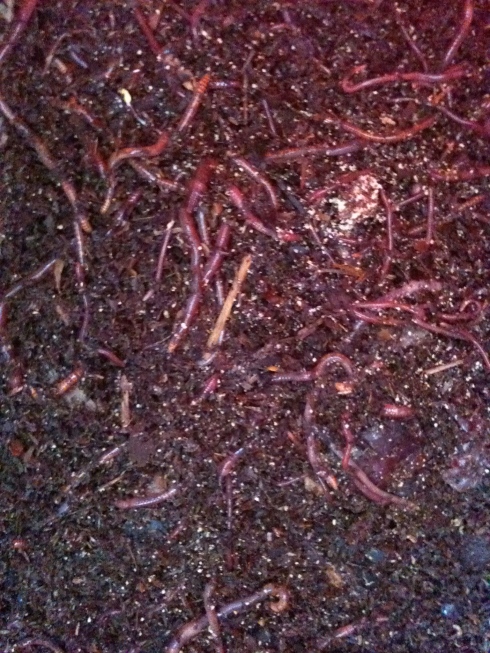
Earthworms have a couple of jobs, and depending on your goals you will need to decide what worm is best for you. Earthworms feed on decaying organic matter and produce castings. Worm castings (worm poop) is nitrogen rich, pH balanced, humous that is ready to be absorbed by plants roots immediately. Earthworms are the intestines of the soil and are top soil producers. Beyond soil production, their other job is to tunnel through the ground aerating and mixing the soil as they work. Earthworms are also the “plow of the soil” mixing layers of earth while they eat, tunnel, and deposit their castings. These tunnels allow oxygen and water to reach roots of plants and break up compacted soil for greater root penetration and growth.
Red Worms (eisenia foteida) If your goal is composting and worm casting production, this prolific producer is your worm. Well suited for bin raising, not a candidate for adding directly to soil.
European Nightcrawler (eisenia hortensis) Larger worm that is an excellent for composting and fishing. Well suited for bin raising, not a candidate for adding directly to soil.
Alabama Jumper (amynthas gracilis) Large worm that is a powerful aerator. Strong worm that is ideal for adding to garden or soil and can burrow deep in hard packed soil. These worms are deep divers and do a great job of mixing layers of the soil, can be bin raised but are better suited for the soil.
Tags: buy red worms, eisenia foetida, european nightcrawlers, houston red worms, organic fertilizer, organic gardening, red wigglers, red worms for sale in houston, red worms for sale in texas, san antonio red worms, vermicompost, vermicomposting, worm castings, worms for sale, worms for sale in texas












